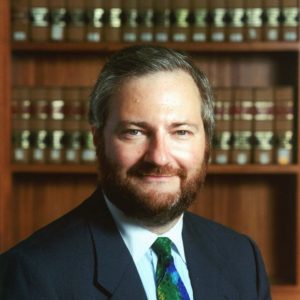CURRENT MONTH (May 2021)
Legal Ethics
Yelp Help: Responding to Negative Online Reviews
By Keith R. Fisher
Many of us have refrained from patronizing a restaurant on the basis of one or more negative online reviews. Admittedly, some of those might be fake (e.g., posted by a competitor) or might otherwise be unfair. Such reviews are not, however, limited to commercial enterprises; reputations of professional service providers have also been injured in this manner.
What if your law practice received an unfairly negative online review? The temptation to rebut or respond is understandable, but beware — legal ethics rules prescribe restraint.
Largely tracking prior state bar ethics opinions and other advisories, ABA Formal Opinion 496 asserts that a lawyer’s ability to respond to online criticism is sharply limited by both confidentiality and prudential concerns under the Model Rules of Professional Conduct. Model Rule 1.6’s confidentiality requirements all but preclude any response to online criticism. Confidentiality prohibits an attorney from disclosing any confidential information about a client or former client without informed consent.
Formal Opinion 496 cautions against relying on the “implied authorization” language of the Rule: Negative online reviews by a current or former client “do not create ‘implied authorization’ for the lawyer to disclose confidential information in response to the online criticism because that is not required to carry out the representation.” The ABA opinion quotes from New York New York State Bar Association Ethics Opinion 1032 (2014): “Unflattering but less formal comments on the skills of lawyers, whether in hallway chatter, a newspaper account, or a website, are an inevitable incident of the practice of a public profession, and may even contribute to the body of knowledge available about lawyers for prospective clients seeking legal advice.”
With the “implied authorization” disqualified, the remaining potentially relevant exception is in Rule 1.6(b)(5), which permits revealing information relating to the representation of a client to the extent the lawyer reasonably believes necessary:
to establish a claim or defense on behalf of the lawyer in a controversy between the lawyer and the client, to establish a defense to a criminal charge or civil claim against the lawyer based upon conduct in which the client was involved, or to respond to allegations in any proceeding concerning the lawyer’s representation of the client.
Ultimately, however, Formal Opinion 496 rejects application of this exception as well. Even if an online posting were to rise to the level of a controversy between lawyer and client, the opinion concludes, a public response is not reasonably necessary or contemplated by Rule 1.6(b)(5) in order for the lawyer to establish a claim or defense on behalf of the lawyer in a controversy between the lawyer and the client.
Opinion 496 offers a list of what it describes as “best practices” for lawyers confounded by negative online criticism. All of these are decidedly risk-averse, and some are more promising than others:
- Request the website or search engine to remove the post. This approach, the opinion somewhat optimistically asserts, is more likely to succeed if the post was made by someone other than a client. Interestingly, if the post was made by someone pretending to be a client, but who is not, Opinion 496 allows a lawyer to apprise the host of the website or search engine of that fact. But be careful not to reveal any confidential client information — see Item 4, below.
- Give serious consideration to not responding at all, so as to avoid escalation with additional negative comments or responses. This is, perhaps, the best of the responses suggested by Opinion 496: No response may well cause the post to become less prominent in the search result rankings, whereas further exchanges between the lawyer and the original poster would likely have the opposite effect and escalate matters. The way the search engines work, the more online postings are made for or against a particular review, the greater the likelihood that the negative review will show up higher in the search results.
- Respond to the person posting the online review with a request to take the conversation offline.
- If the person posting the review is not a client or former client, simply respond that the person is neither a client nor a former client. Caution is required here as well. “If the post was made by someone pretending to be a client, but who is not, … unless the client consents to disclosure, the lawyer may not disclose any information that relates to a client’s representation or that could reasonably lead to the discovery of confidential information by another, but may state that the post is not accurate or that the lawyer has not represented the poster if that is the case.”
- If the negative online review is from a client or former client, respond directly to the client or former client, but don’t do so online. Note here that the Standing Committee expressly disagreed with Colorado Ethics Opinion 136 (2019), which took the position that if the online criticism rises to the level of a controversy between lawyer and client, the lawyer may ethically disclose limited information, though Colorado urges caution in responding; the ABA’s view is that any such public disclosure of client information online exceeds the scope of any permissible response contemplated by Rule 1.6 and its comments. Opinion 496 also distinguished D.C. Ethics Opinion 370 (2016) (see Part II.C of that opinion) on the basis that D.C.’s version of Rule 1.6 differs significantly from the Model Rule.
- Post responses noting that their professional obligations do not permit a substantive online response.
Conspicuously absent is any mention of a lawyer taking the nuclear option and suing the poster for defamation. This is a high-risk strategy and should only be considered in those rare situations where the injury wrought by the online criticism is very substantial. Even then, care must be taken to avoid disclosure of confidential information protected by Rule 1.6.
Federal Court Declares PA Version of Model Rule 8.4(g) Unconstitutional
By Keith R. Fisher
A 2016 law school graduate filed a lawsuit in the Eastern District of Pennsylvania challenging the constitutionality of Pennsylvania’s Rule of Professional Conduct 8.4(g), an antidiscrimination/anti-harassment provision modeled on (but somewhat different from) ABA Model Rule 8.4(g). The State Professional Discipline Board moved to dismiss the case for lack of standing, and the plaintiff moved for preliminary injunctive relief. On December 8, 2020, the date on which the Pennsylvania rule was to become effective, the court denied the former and granted the latter.
As alleged in the complaint, plaintiff’s job responsibilities include speaking and writing on a number of topics, including freedom of speech, freedom of association, due process, legal equality, and religious liberty. He is also a member of the First Amendment Lawyers Association, which regularly conducts continuing legal education (“CLE”) events for its members. Plaintiff has written and spoken against banning hate speech on university campuses and university regulation of hateful online expression as protected by the First Amendment. The complaint alleged that “it would be nearly impossible to illustrate . . . First Amendment jurisprudence . . . without engaging in speech that at least some members of his audience will perceive as biased, prejudiced, offensive, and potentially hateful,” and that each such presentation “carries the risk that an audience member will file a bar disciplinary complaint against [plaintiff] based on the content of his presentation under rule 8.4(g).
The extent to which the court’s decision threatens those few jurisdictions that have adopted Model Rule 8.4(g) substantially in haec verba may depend on how significant another court, faced with a similar challenge, finds the differences between the Model Rule and its Pennsylvania avatar to be.
In 2020, the Pennsylvania Supreme Court adopted, effective December 8, 2020, Pennsylvania Rule of Professional Conduct 8.4(g), along with official comments numbered [3] and [4]. The rule had initially been proposed by the Court’s Professional Discipline Board in 2016, following adoption of the ABA Model Rule 8.4(g), and went through an iterative process of notice and comment between December 2016 and June 2020.
The Pennsylvania rule is at once broader and narrower than the Model Rule: broader in that it is explicit in prescribing not just “conduct” but “words” as well, and narrower in (A) applying only to “knowing” behavior, defined in Pa. R. Prof. Cond. 1.0(f) to include only actual knowledge, whereas the Model Rule encompasses a “should have known” standard; and (B) in limiting professional misconduct to harassment and discrimination as defined by statute or decisional law.
Comment 3 to the Pennsylvania Rule provides:
[3] For the purposes of paragraph (g), conduct in the practice of law includes participation in activities that are required for a lawyer to practice law, including but not limited to continuing legal education seminars, bench bar conferences and bar association activities where legal education credits are offered.
Pennsylvania’s Comment 3 is a more streamlined and specific – particularly in its identification of CLE seminars and “bar association activities where legal education credits are offered” – version of language in the Model Rule’s Comment 4, which reads in pertinent part,
“Conduct related to the practice of law includes representing clients; interacting with witnesses, coworkers, court personnel, lawyers and others while engaged in the practice of law; operating or managing a law firm or law practice; and participating in bar association, business or social activities in connection with the practice of law. . . .”
Pennsylvania’s Comment 4 is a modified version of the final sentence of the Model Rule’s Comment [3]. While the latter says that the “substantive law of antidiscrimination and anti-harassment statutes and case law may guide application of paragraph (g)” (emphasis added), the former expressly tethers the scope of the rule to existing federal and state statutory and case law, as shown:
[4] The substantive law of antidiscrimination and anti-harassment statutes and case law may guide application of paragraph (g) and clarify the scope of the prohibited conduct.
On the merits, the court relied on two U.S. Supreme Court speech cases decided since the ABA adopted Model Rule 8.4(g): National Institute of Family and Life Advocates v. Becerra, 138 S. Ct. 2361 (2018) (“NIFLA”) and Matal v. Tam, 137 S. Ct. 1744 (2017). NIFLA held that state restrictions on “professional speech” are presumptively unconstitutional and subject to strict scrutiny; Matal held that a federal law prohibiting the registration of trademarks that may “disparage . . . or bring . . . into contemp[t] or disrepute” any “persons, living or dead” constituted unconstitutional governmental viewpoint discrimination.
The district court concluded that PA Rule 8.4(g) is an unconstitutional content-based restriction on lawyers’ speech under NIFLA and under Matal an unconstitutional viewpoint-based restriction on lawyers’ speech that cannot survive the strict scrutiny triggered by viewpoint discrimination.
Although a notice of appeal to the Third Circuit was filed, the Pennsylvania Bar subsequently dismissed the appeal voluntarily, so the district court’s decision is final.




